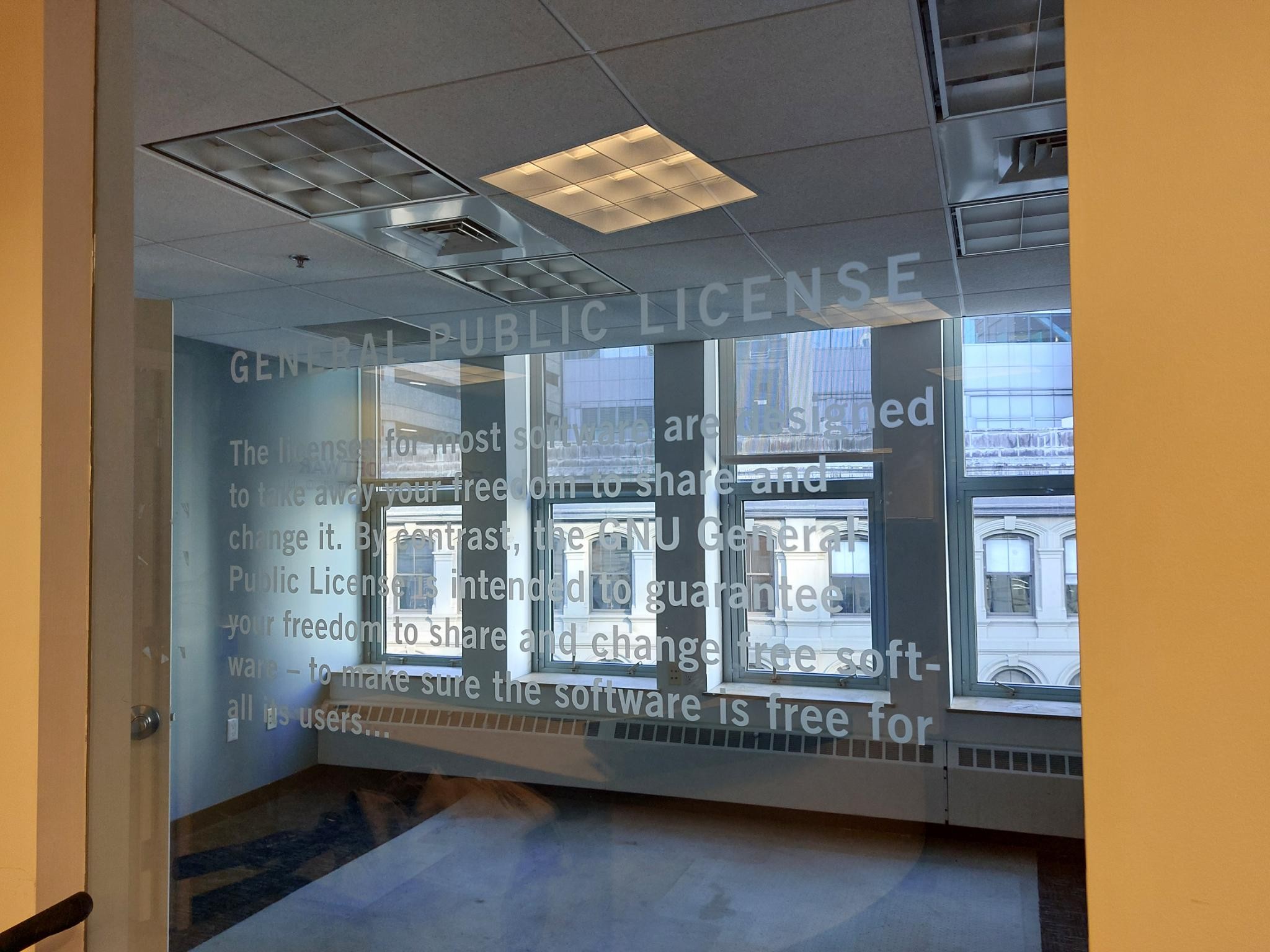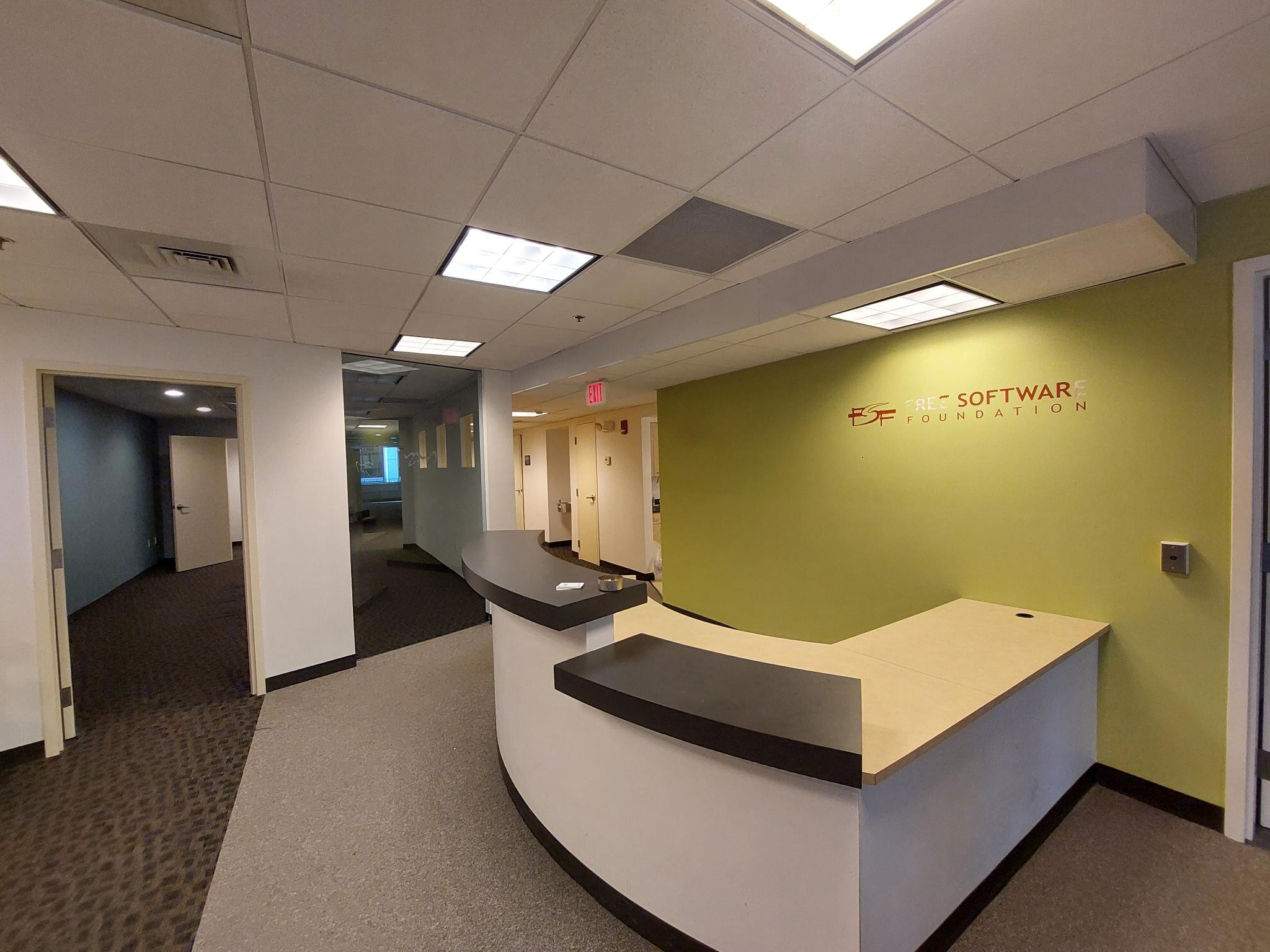New energies for a remote FSF
The Free Software Foundation (FSF) has pushed for the creation and adoption of free software since 1985; the solution to the rise of proprietary software, and its protecting strategy, copyleft, were the main focus of the early FSF. As the FSF grew in size and scope, it added campaigning, education, protesting, advocacy, compliance, supporting other community projects with tech support or fiscal sponsorship, and more. On page three in the physical Bulletin, Jason Self gives us a detailed overview of all the locations the FSF occupied over the years, because for most of the FSF's existence, the FSF had a physical home. On August 31, 2024, the FSF moved out of our long-serving office.

The move entailed days of sorting through and moving materials, including: a range of items with more or less historical value, like awards, original artworks, and different versions of the baby GNU; Respects Your Freedom (RYF) certified devices; organizational documents; endless amounts of tech materials; copyright assignments; GNU Press shop merchandise; trash; recycling; and one inconveniently large conference table.
A year ago, I couldn't imagine that the fifth floor of 51 Franklin St. would no longer sport the red Free Software Foundation logo on its green wall behind the entrance desk, or that the preamble of the GPL would be scratched off the glass windows of the tech offices. The Boston office saw many adventures. It hosted people of many different talents and backgrounds, and facilitated the birth of many of our regular events that made the office full of life. It was where we protested with the community on International Day Against DRM (IDAD), teamed up with volunteers for biannual fundraiser mailing events, and socialized around the annual LibrePlanet conferences. It was also the place where we, the current staff members of the FSF, came into work every single day to unite against the proprietary software corporations of this world.

Now, a little more than a year before our fortieth birthday, the FSF became a remote organization, with many of our staff not even based in Boston anymore. This didn't happen overnight, of course. Before the COVID-19 pandemic, aside from a few remote staff, most of the FSF staff were following Franklin St. in-person office hours with only two days of remote working allowed per two weeks! Since then, like many other organizations, our staff and policies changed and moved, and we became accustomed to working remotely. This shift moved our center of gravity, leaving Franklin St. quiet.
As a 501(c)(3) focused on putting software users front and center, we always keep in mind that sticking to our mission of protecting computer user rights is more important than any financial consideration. With the majority of our income coming from individuals, if the economy suffers, our supporters suffer, and so do we. Pushing for change is not a profitable business — there are too many people and corporations that have something to lose. But we handle the money entrusted to us by the community with the utmost care. And so, on the eve of a twenty-year anniversary at Boston’s Downtown Crossing, we decided to let go of an unreasonable expense in an already difficult economy and put the funds we have to work for more activism instead of holding on to a physical location.
We will be highlighting connections across the world and focusing on
new community-building initiatives, both virtual and in-person, and we
can’t wait to see you there. And, we will be using our fortieth
anniversary year and our newfound decentralized presence to our
advantage to continue advocating for free software far and wide.
Leaving an era and a home behind can be difficult, but we have also
found it to be a fresh and freeing start. Without the costs of the
office we will be able to recover from our financial challenges
faster, put a larger proportion of donations towards executing the
work, and find motivation and energy in new places.
Photo Copyright © 2024, Free Software Foundation, Inc., by Anouk Rozestraten licensed under a Creative Commons Attribution 4.0 International License.

